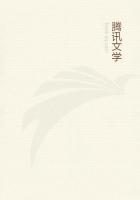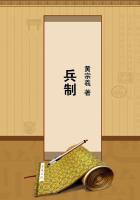IN a certain town there lived a cobbler, Martin Avdéiteh by name.
He had a tiny room in a basement, the one window of which looked out on to the street. Through it one could only see the feet of those who passed by, but Martin recognized the people by their boots. He had lived long in the place and had many acquaintances.
There was hardly a pair of boots in the neighbourhood that had not been once or twice through his hands, so he often saw his own handiwork through the window. Some he had re-soled, some patched, some stitched up, and to some he had even put fresh uppers.
He had plenty to do, for he worked well, used good material, did not charge too much, and could be relied on. If he could do a job by the day required, he undertook it; if not, he told the truth and gave no false promises; so he was well known and never short of work.
Martin had always been a good man; but in his old age he began to think more about his soul and to draw nearer to God. While he still worked for a master, before he set up on his own account, his wife had died, leaving him with a three-year old son. None of his elder children had lived, they had all died in infancy. At first Martin thought of sending his little son to his sister's in the country, but then he felt sorry to part with the boy, thinking: 'It would be hard for my little Kapitón to have to grow up in a strange family;
I will keep him with me.'
Martin left his master and went into lodgings with his little son. But he had no luck with his children. No sooner had the boy reached an age when he could help his father and be a support as well as a joy to him, than he fell ill and, after being laid up for a week with a burning fever, died. Martin buried his son, and gave way to despair so great and overwhelming that he murmured against God. In his sorrow he prayed again and again that he too might die, reproaching God for having taken the son he loved, his only son while he, old as he was, remained alive. After that Martin left off going to church.
One day an old man from Martin's native village who had been a pilgrim for the last eight years, called in on his way from Tróitsa Monastery. Martin opened his heart to him, and told him of his sorrow.
'I no longer even wish to live, holy man,' he said. 'All I ask of God is that I soon may die. I am now quite without hope in the world.'
The old man replied: 'You have no right to say such things, Martin.
We cannot judge God's ways. Not our reasoning, but God's will, decides. If God willed that your son should die and you should live, it must be best so. As to your despair -- that comes because you wish to live for your own happiness.'
'What else should one live for?' asked Martin.
'For God, Martin,' said the old man. 'He gives you life, and you must live for Him. When you have learnt to live for Him, you will grieve no more, and all will seem easy to you.'
Martin was silent awhile, and then asked: 'But how is one to live for God?'
The old man answered: 'How one may live for God has been shown us by Christ. Can you read? Then buy the Gospels, and read them: there you will see how God would have you live. You have it all there.'
These words sank deep into Martin's heart, and that same day he went and bought himself a Testament in large print, and began to read.
At first he meant only to read on holidays, but having once begun he found it made his heart so light that he read every day.
Sometimes he was so absorbed in his reading that the oil in his lamp burnt out before he could tear himself away from the book.
He continued to read every night, and the more he read the more clearly he understood what God required of him, and how he might live for God. And his heart grew lighter and lighter. Before, when he went to bed he used to lie with a heavy heart, moaning as he thought of his little Kapitón; but now he only repeated again and again: 'Glory to Thee, glory to Thee, O Lord! Thy will be done!'
From that time Martin's whole life changed. Formerly, on holidays he used to go and have tea at the public house, and did not even refuse a glass or two of vódka. Sometimes, after having had a drop with a friend, he left the public house not drunk, but rather merry, and would say foolish things: shout at a man, or abuse him.
Now, all that sort of thing passed away from him. His life became peaceful and joyful. He sat down to his work in the morning, and when he had finished his day's work he took the lamp down from the wall, stood it on the table, fetched his book from the shelf, opened it, and sat down to read. The more he read the better he understood, and the clearer and happier he felt in his mind.
It happened once that Martin sat up late, absorbed in his book. He was reading Luke's Gospel; and in the sixth chapter he came upon the verses:
'To him that smiteth thee on the one cheek offer also the other; and from him that taketh away thy cloke withhold not thy coat also. Give to every man that asketh thee; and of him that taketh away thy goods ask them not again. And as ye would that men should do to you, do ye also to them likewise.'
He also read the verses where our Lord says:
'And why call ye me, Lord, Lord, and do not the things which I say?
Whosoever cometh to me, and heareth my sayings, and doeth them, I will shew you to whom he is like: He is like a man which built an house, and digged deep, and laid the foundation on a rock: and when the flood arose, the stream beat vehemently upon that house, and could not shake it: for it was founded upon a rock. But he that heareth and doeth not, is like a man that without a foundation built an house upon the earth, against which the stream did beat vehemently, and immediately it fell; and the ruin of that house was great.'
When Martin read these words his soul was glad within him. He took off his spectacles and laid them on the book, and leaning his elbows on the table pondered over what he had read. He tried his own life by the standard of those words, asking himself:















